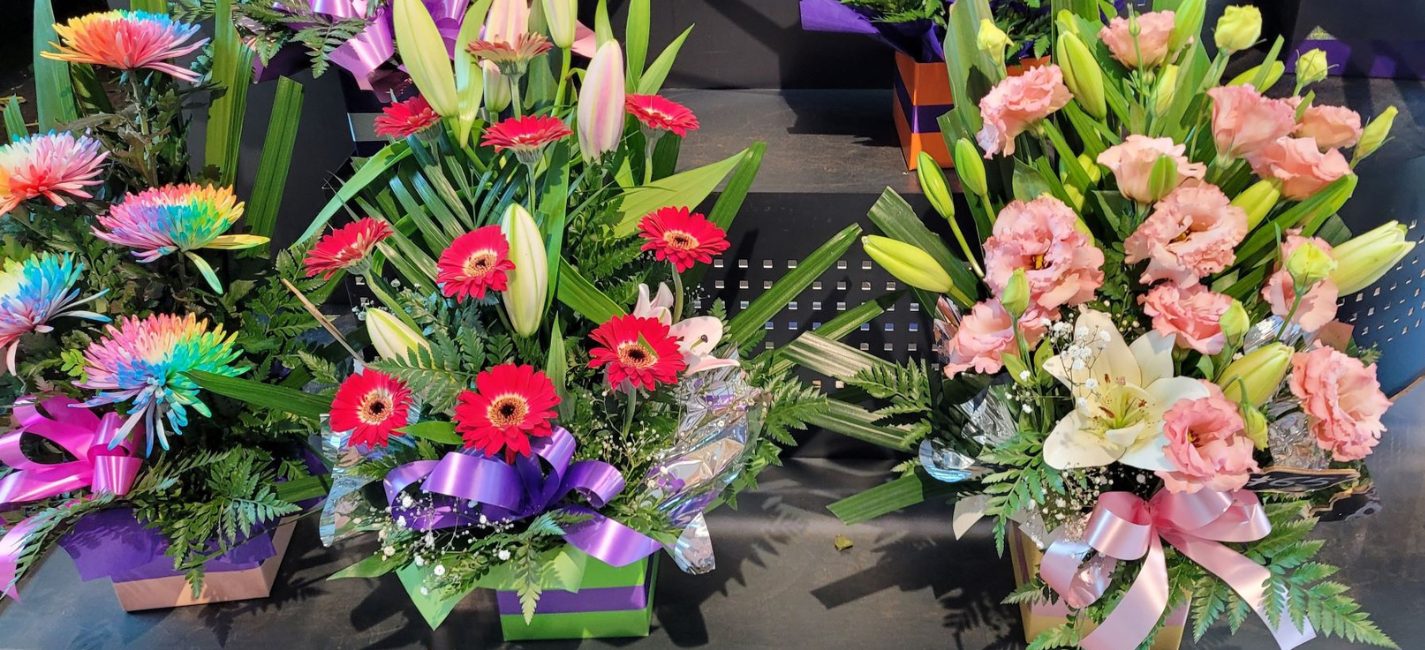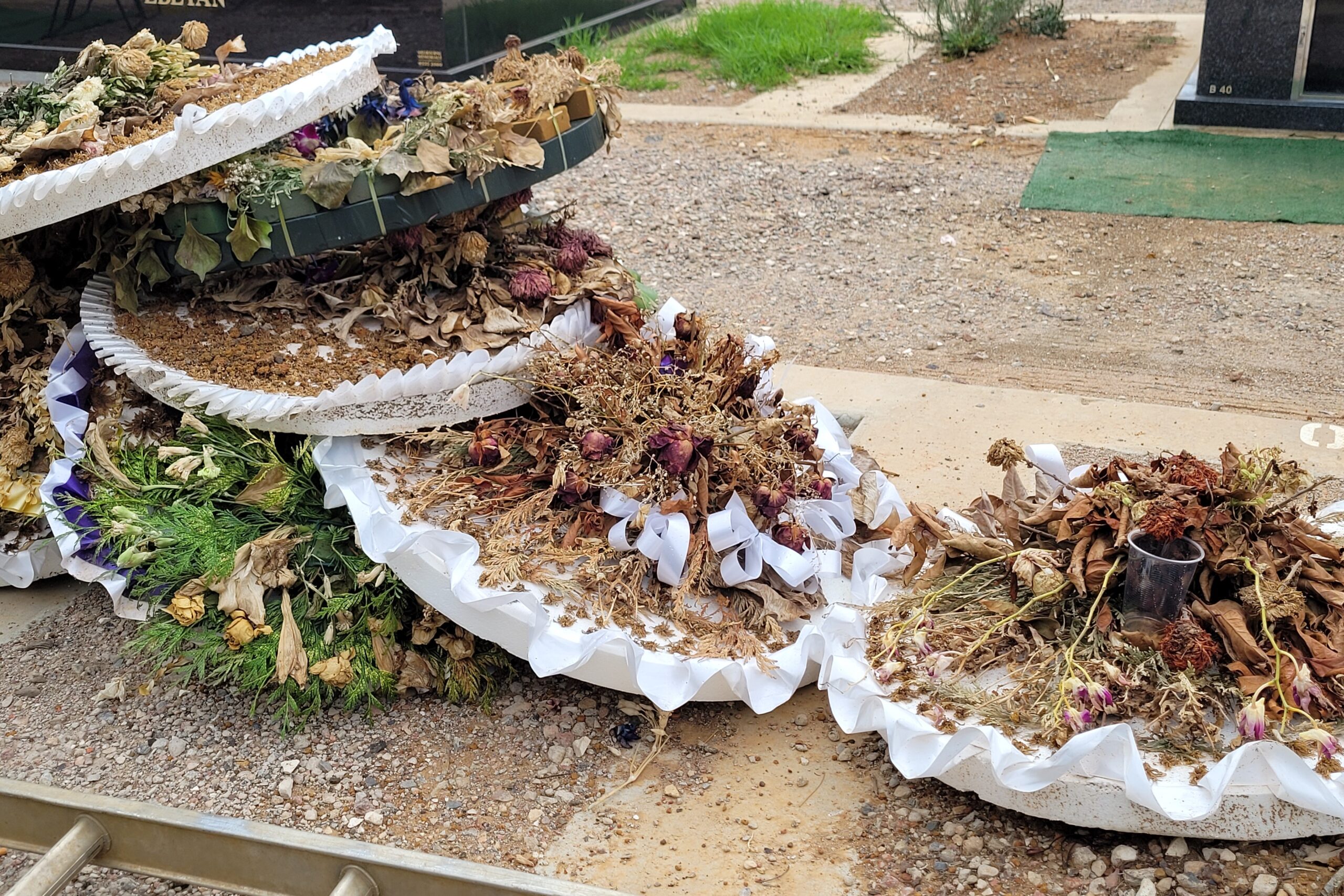Zero-waste floristry
The SFN’s position is that zero waste floristry is possible. To achieve this both florists and consumers must support circular economy objectives and consider the entire life-cycle of the materials we use, from manufacture, through to disposal.

Grab and go flower boxes are destined for disposal.
Excessive waste
Floristry produces excessive amounts of waste
For an industry that celebrates nature, floristry produces excessive amounts of waste.
But it doesn’t need to be that way.
Flowers are perfectly happy in a vase of water. And given that the overwhelming majority of flowers sold across the world are sold as bunches and taken home and put in a vase – that’s just as well.
Zero Waste: “The conservation of all resources by means of responsible production, consumption, reuse and recovery of products, packaging and materials without burning and with no discharges to land, water or air that threaten the environment or human health.”
❝ — Zero Waste International Alliance, 2018
Destined for disposal
While industries all over the world are working hard to reduce the impact their packaging has on the environment, it sometimes seems like floristry is doing the opposite.
Those quick grab-and-go boxes of flowers at a local supermarket or flower kiosk look simple on the outside, but inside they are a complicated mix of floral products that make handling the waste a nightmare for consumers.
Likewise, the average funeral tribute or wedding arbour seems to be composed entirely of flowers, but underneath, single-use plastics are working hard to fast-track their way to the rubbish bin.

Inside the box there is a whole lot of waste going on.

After the flowers have passed away, waste remains.
Flowers are compostable
At the end of their life, cut flowers can be placed in the green waste/compost stream, provided they haven’t been preserved, painted or altered with plastic-based materials after harvest.
It follows then that the products intertwined with the flowers should either be safely compostable, or easy to separate into domestic waste streams.
Fortunately, there are many sustainable options flower-customers can opt for, and florists can recommend.
We’re aiming for #zerowastefloristry
• Florists
By avoiding single-use plastics and making it easy for customers to divert used packaging materials into domestic recycling streams, florists can support ideas about #zerowastefloristry
• Customers
By requesting simple paper wrapping, reusable vessels and avoiding single-waste plastics and complicated packaging, flower lovers can cut the waste footprint of their purchase dramatically.